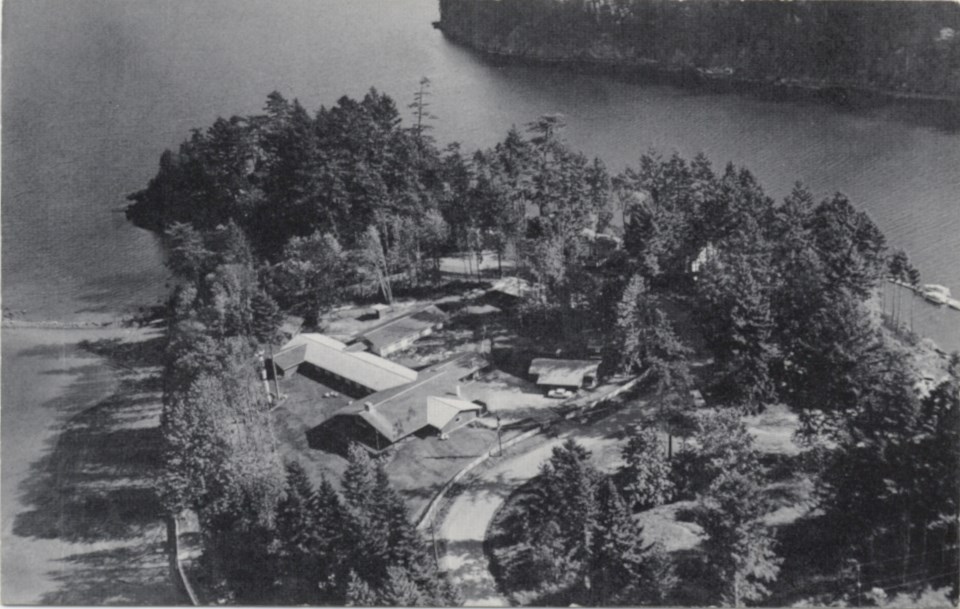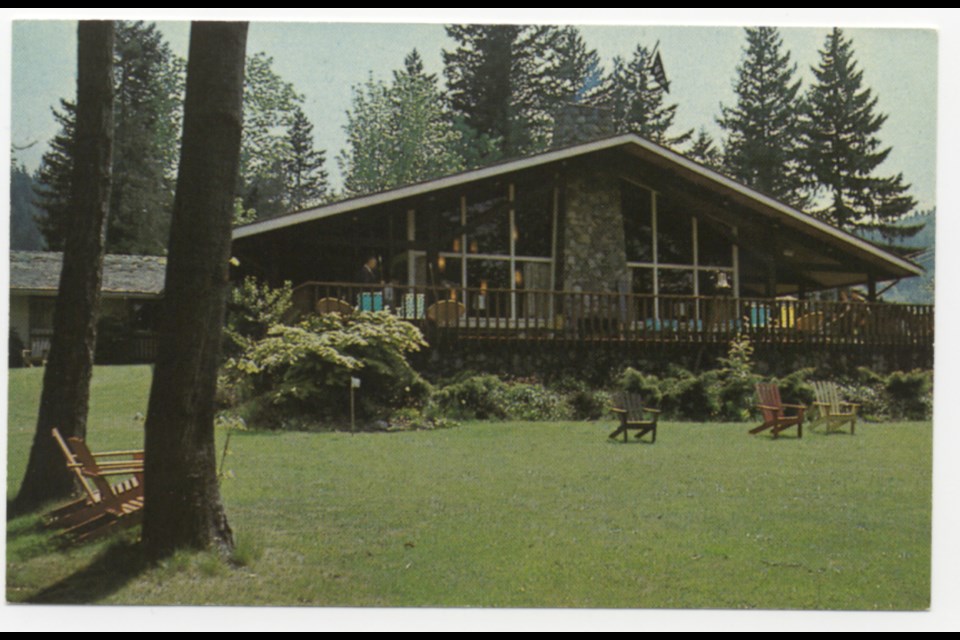The 2022 Heritage Week theme is Altogether Inclusive. We are taking this opportunity to explore some of the barriers that restrict participation in both the museum and archives by partially-sighted and blind visitors. Our goal is to address accessibility challenges and become as inclusive as possible.
We are fortunate to be able to work with the Camp Bowen Division of the Canadian Organization of the Blind and DeafBlind for assistance in making some of the desired changes. We began with an Island Pacific School student led oral interview with Alex Jurgensen, one of the directors of Camp Bowen. The thoughtful questions and answers provided insight into the lives of the blind and visually impaired on the island.
There is a long history of blind people visiting Bowen Island beginning when the Terminal Steamships Company (1902-1920) brought groups of people to Bowen for picnics. The Union Steamship Company (1920-early 1960s) carried on the tradition, offering free transportation on their steamships to Bowen for the annual picnics for the blind.
During the Union Steamships era, the Fraternal Order of Eagles sponsored fishing camps for the blind. This captured the attention of Captain M.C. Robinson, who was the CNIB director for British Columbia and Alberta. He was blinded at eighteen while serving in the First World War and understood the problems of adjusting to a new way of life. Robinson became the moving force behind the idea of developing a recreation and training centre for the blind and visually impaired on Bowen.
When the Union Steamship Company property came on the market in the early 1960s, Robinson’s project began to take shape. The CNIB acquired three acres of waterfront in Deep Bay. The project included a newly built lodge with 20 double and three single bedrooms, a combination lounge and recreation area, and a well-equipped kitchen. As well as a patio with an outdoor fireplace and a hobby building. Outside trees were cut and the ground levelled, and camp sites and picnic shelters were built. Blacktopped pathways were created to guide the summer residents across the lawns and down the bank to the beach. The new building was handed over to the CNIB owners in the fall of 1962 and on June 1st, 1963, the lodge was officially opened. It offered recreational camps and independent living skills training. The goal was to provide a retreat for visually impaired and blind British Columbians in the summer and independent living skills training in the winter.
Bowen Island offered a safe and welcoming place for the blind. In a 1974 newspaper article Joe Lewis wrote: “The moment a blind person sets foot on this island he is aware of being in a totally different world. There is no traffic confusion, no crowds, no noise. It’s different that’s all.”

A 1981 letter written by Martin Clarke, on behalf of the Bowen Island Recreation Commission, points to further fostering relationships with the CNIB and the community. He asks how the Recreation Commission, Community School Association and the CNIB could support each other’s services, talents and facilities. The result of this was that the community was able to use the CNIB lodge for workshops, concerts, and social events during the off season. And Bowenians responded to the CNIB’s request for ways to integrate their guests more fully into the community. Martin requested volunteers to drive, take guests fishing or boating, and make their houses available as destination points for walking expeditions.
Throughout the years the programs at the CNIB Lodge continued to grow. However in 2009, CNIB announced its plans to restrict its program offerings to a day camp. This move was met with much outrage from the community. In 2010 CNIB began the process of selling the Bowen Lodge by the Sea property and announced that the 2010 camping season would be the last CNIB run camping program on Bowen Island.
In August of 2010, former campers of the original CNIB Camp Bowen project joined forces and the Camp Bowen Society for the Visually Impaired (now the Camp Bowen Division of the Bowen-based Canadian Organization of the Blind and DeafBlind) was born. The first retreat on Bowen Island was in 2011. They have continued to work hard to ensure that Camp Bowen remains a reality on Bowen. (See campbowen.ca for the details)
Alex Jurgensen, a director of the Camp Bowen Division of the Canadian Organization of the Blind and DeafBlind, talked to the IPS students about how Bowen has been and continues to be a welcoming and inclusive community, people are friendly, cars travel slowly and they feel safe. He also touched on what improvements we could make within our organization. Braille documents in the archives, touchable artifacts in the museum - stay tuned we are working on it. Let’s celebrate Altogether Inclusive on Bowen for more than just one week. To find out more about the fundraising project for Camp Bowen visit https://bowenislandcentre.ca/donate/


